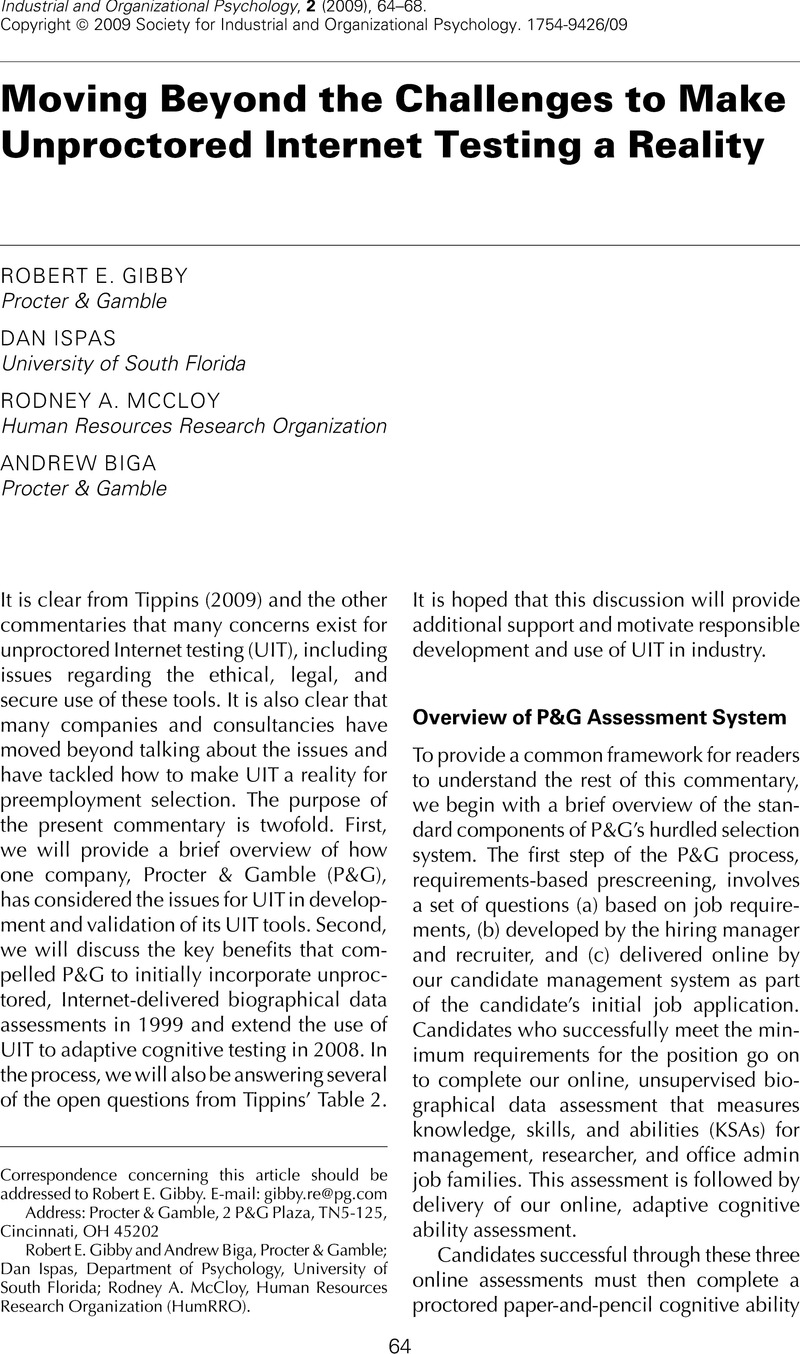Crossref Citations
This article has been cited by the following publications. This list is generated based on data provided by Crossref.
Tippins, Nancy T.
2009.
Where Is the Unproctored Internet Testing Train Headed Now?.
Industrial and Organizational Psychology,
Vol. 2,
Issue. 1,
p.
69.
McCloy, Rodney A.
and
Gibby, Robert E.
2011.
Technology‐Enhanced Assessment of Talent.
p.
153.
Scott, John C.
and
Lezotte, Daniel V.
2012.
The Oxford Handbook of Personnel Assessment and Selection.
p.
485.
Ross, William
and
Slovensky, Ross
2012.
Encyclopedia of Cyber Behavior.
p.
537.
Tippins, Nancy T.
2015.
Technology and Assessment in Selection.
Annual Review of Organizational Psychology and Organizational Behavior,
Vol. 2,
Issue. 1,
p.
551.
Le Corff, Yann
Gingras, Véronique
and
Busque‐Carrier, Mathieu
2017.
Equivalence of unproctored internet testing and proctored paper‐and‐pencil testing of the Big Five.
International Journal of Selection and Assessment,
Vol. 25,
Issue. 2,
p.
154.
Dages, Kelly D.
Zimmer, Seth
and
Jones, John W.
2017.
Pre‐employment risk screening: Comparability of integrity assessment technology platforms.
International Journal of Selection and Assessment,
Vol. 25,
Issue. 4,
p.
390.
Langenfeld, Thomas
2020.
Internet‐Based Proctored Assessment: Security and Fairness Issues.
Educational Measurement: Issues and Practice,
Vol. 39,
Issue. 3,
p.
24.
Steger, Diana
Schroeders, Ulrich
and
Gnambs, Timo
2020.
A Meta-Analysis of Test Scores in Proctored and Unproctored Ability Assessments.
European Journal of Psychological Assessment,
Vol. 36,
Issue. 1,
p.
174.
Nugroho, Muhammad Arief
Abdurohman, Maman
Prabowo, Sidik
Nurhayati, Iis Kurnia
and
Rizal, Achmad
2023.
Information Systems for Intelligent Systems.
Vol. 324,
Issue. ,
p.
229.
Taşkın, Necati
2024.
Teaching and Assessment in the Era of Education 5.0.
p.
157.



